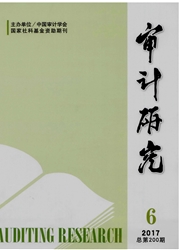

 中文摘要:
中文摘要:
拥有大量资源的金融机构是企业获取外部资金的重要途径之一,与金融机构建立长期稳定的关系通过关联贷款、信号传递等直接与间接途径缓解融资约束,降低企业现金储备。因此,很多企业逐渐开始持有金融机构的股权。本文采用配对样本的方法,对2007年到2011年615家持有非上市金融机构股权的A股上市公司进行的研究发现:持股金融机构的确能够为企业带来好处,可以通过缓解企业的融资约束,从而在一定程度上间接降低对于现金储备的需求,但持股金融机构也直接降低了企业的现金储备需求。而且,持股金融机构更加有利于融资约束较高的企业降低现金储备。而以上影响主要是持股非银行类金融机构产生的,持股银行并没有显著影响企业融资约束和现金持有水平。另外,持股金融机构对企业融资约束以及现金储备的影响对非国有企业更加明显。
 英文摘要:
英文摘要:
A closer bank-firm relationship is beneficial to corporate development since firms are able to mitigate their financing constraints through direct or indirect means, such as related-party loans or signalling. This results in more firms tending to invest in financial institutions. This paper matches 615 firms investing in nonlisted financial institutions over the period 2007 to 2011 with 615 firms of the closest asset size in the same industry and year but without such investment. We find that investing in financial institutions can be beneficial for firms. It can lower the financing constraints and demand for cash reserves, not only directly (due to the close relationship between holding firms and financial institutions), but also indirectly (due to the influence on financing constraints, which require a higher level of cash holdings). Higher financing constraints will stimulate firms to hold more cash, while investing in financial institutions can enable such firms to reduce their reserves. When we divide the shareholdings further into nonlisted banks and nonlisted, nonbanking institutions, we find that the former does not significantly affect financing constraints and cash holdings, but the latter effectively alleviates firms' financing constraints and reduces the level of cash. Furthermore, we find that the influence of investing in financial institutions is more evident for NSOEs than SOEs in China.
 同期刊论文项目
同期刊论文项目
 同项目期刊论文
同项目期刊论文
 期刊信息
期刊信息
